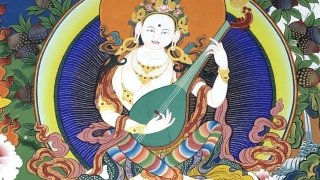Join musician Techung and the members of the Tibetan Ensemble, Tenzin Norbu, Namgyal Dolma, and Tenzin Kalsang for an evening of traditional Tibetan music, dance, and opera.
Supported by the Birdsong Fund for Visiting Music Faculty.
The concert is free, open to the public, and in-person, with livestreaming.
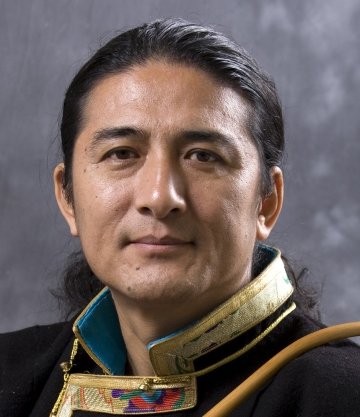
Techung is a Tibetan singer/songwriter living in Lake Placid, NY. He is best known for his skilled and moving performances of traditional Tibetan music, dance, and opera. Techung’s career, along with his ongoing projects, demonstrates his commitment to Tibetan music and culture. This is the result of his classical training and his experience as a child growing up as a Tibetan exile in India in the 1960s and 1970s. Techung understands music as a living art and practice. Over the decades, he has recorded over a dozen traditional and contemporary Tibetan music albums. His dual purpose has been to revive Tibetan music in the Tibetan community and to promote the rich performing tradition of his homeland to a broader audience worldwide.
Techung has performed regularly at Carnegie Hall, joined by prominent artists such as Philip Glass, Patti Smith, and others. Techung has been honored to open for His Holiness the Dalai Lama’s public talks in the USA, Costa Rica, and Japan in recent years. Most recently, Techung was awarded the prestigious New York Foundation for the Arts Fellowship in Folk and Traditional Arts and has been nominated for the National Heritage Award by the National Endowment for the Arts. Techung creates a Tibetan cultural legacy for all to enjoy, appreciate, and learn from. As a Tibetan-American musician, Techung’s work provides a window into Tibetan aspirations and culture and enriches and becomes rooted in the American cultural landscape.
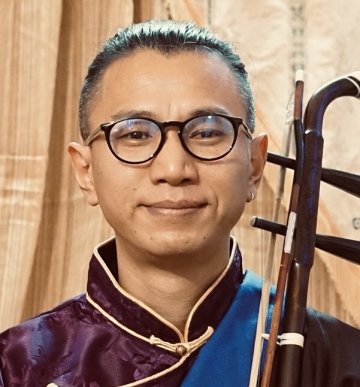
Tenzin Norbu was born in Lhasa, Tibet, and migrated to India at 11 years old to further his studies. In 2004, he joined the Tibetan Institute of Performing Arts (TIPA), where he studied Tibetan Performing Arts and was one of the lead musicians of the TIPA in India. He is acclaimed as the best player of the piwang, the Tibetan violin. Tenzin had toured with TIPA in India and around the world. He is busy recording and producing albums of traditional and contemporary music for up-and-coming Tibetan artists and teaches music and dance to Himalayan-American children in the New York area. He also studied Western music and theories.
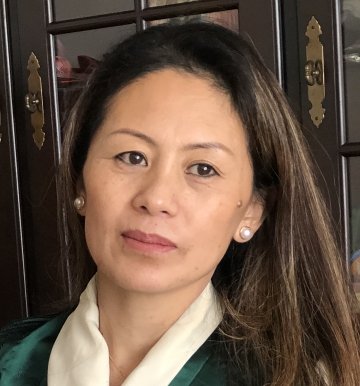
Namgyal Dolma studied Tibetan dance and opera at the Tibetan Institute of Performing Arts (TIPA) from a young age. She became a senior artist and toured extensively with TIPA around the world. She has performed with San Francisco’s Chaksampa Tibetan Dance and Opera Company. She also teaches dance and songs to the children of New York and New Jersey Tibetan communities.
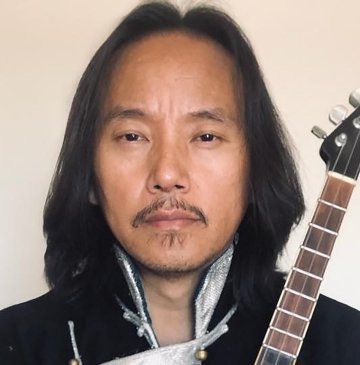
Tenzin Kalsang was born and raised in Dharamsala, India. He entered the Tibetan Institute of Performing Arts (TIPA) at a young age and became a senior male artist. Tenzin has toured India, North America, and Europe with TIPA and has made several recordings. He took the lead role in the Chaksampa Tibetan Dance and Opera Company’s performance of Sukyi Nima at Emory University in 2012. He also teaches traditional music to Tibetan children in New York and New Jersey.
Performance Description: Since time immemorial, Tibetans have been singing and playing music as part of their lives. Tibet has a wide range of performing traditions such as the Ache Lhamo opera, the Gesar epic, the court music, the Layig love songs of Amdo, and spiritual practices such as Chöd, Gurma songs, throat-singing, and Lama Mani story-telling.
Tibetan musical traditions called Nangma/Toeshay (or Nangtoe for short), which incorporate two distinct musical styles, became widely popular in the sixteenth and seventeenth century in Central Tibet with the formation of Nangma Kyiduk or associations. With the support of the Tibetan ruling elite, Nangma groups further expanded, and the music itself developed and, in due course, came to be associated with official banquets and picnics. Nangma perhaps reached its pinnacle in the 1930s with the greatest Nangma musician called, Acho Namgyal, a blind maestro from Dhakpo in south central Tibet. Namgyal composed and performed some of the best-known Nangma songs, which are performed to this day.
This is one of the reasons why during the last seven years, Techung has been undertaking his “Tibetan Music Preservation” project to professionally record and perform the songs that he learned from his elders from Tibet in India. After the completion of his research, Techung has uploaded over sixty Nangma and Toeshey songs which are available online for public listening and downloading for free.
Visit Techung's website at https://www.techung.com/ to learn more about him and listen to his music.

